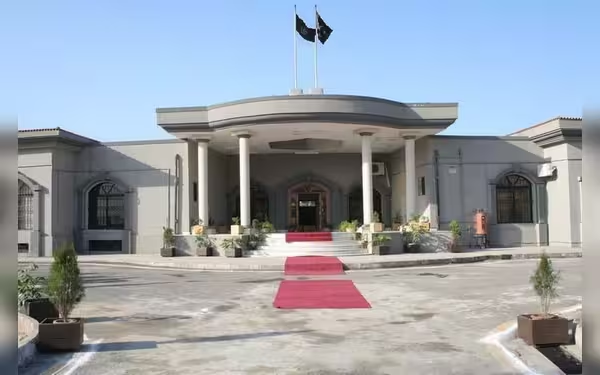Tuesday, July 2, 2024 03:14 PM
Islamabad High Court Cracks Down on Unauthorized Surveillance
- Strict directive against unauthorized surveillance on citizens
- Emphasis on upholding citizens' fundamental rights and privacy
- Mandate for intelligence agencies and police to obtain warrants before surveillance
 Image Credits: tribune_pk
Image Credits: tribune_pkThe Islamabad High Court issues a strict directive against unauthorized surveillance, emphasizing citizens' privacy rights and requiring warrants for surveillance activities by intelligence agencies and police.
The Islamabad High Court has issued a strict directive regarding unauthorized surveillance on citizens by any individual, entity, or agency without proper authorization from the federal government. This ruling emphasizes the importance of upholding citizens' fundamental rights and privacy as enshrined in the Constitution of Pakistan.
The court highlighted that any unauthorized surveillance, including intercepting calls, messages, or conducting any form of monitoring, is deemed illegal and punishable under various laws such as the Telegraph Act, the Telecommunication Act, the Fair Trial Act, and the Prevention of Electronic Crimes Act (PECA).
Furthermore, intelligence agencies like the ISI and IB, along with police authorities, have been instructed to strictly adhere to the requirement of obtaining warrants from a high court judge before conducting any surveillance activities on citizens. The Pakistan Telecommunication Authority (PTA) and telecom companies are also barred from authorizing any interception of phone calls or data without explicit permission.
In response to concerns raised about potential past surveillance activities, the federal government is mandated to submit detailed reports on surveillance warrant requests made under the Fair Trial Act since 2013. Additionally, intelligence agencies and police authorities are required to report on their compliance with the Fair Trial Act in appointing authorized officers and seeking proper approval for surveillance.
The court has also requested the PTA to provide information on any standard operating procedures or instructions issued to telecom operators regarding lawful interference or sharing of customer data in alignment with the Fair Trial Act.
The Islamabad High Court's decisive stance on unauthorized surveillance serves as a crucial step towards safeguarding the privacy and rights of Pakistani citizens. By enforcing strict regulations and holding accountable those who violate these laws, the court aims to ensure that citizens' liberty and dignity are respected, setting a precedent for upholding legal standards in surveillance practices.













